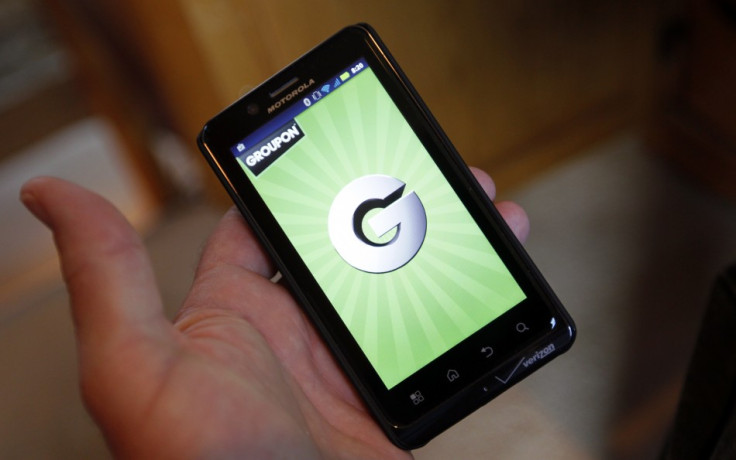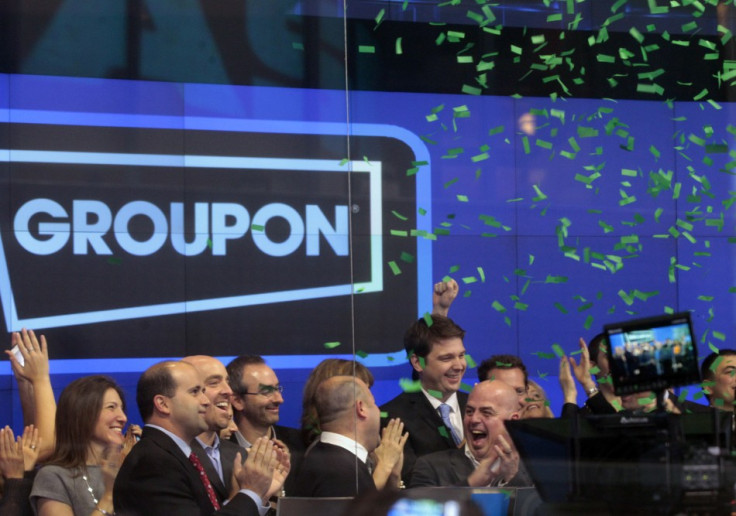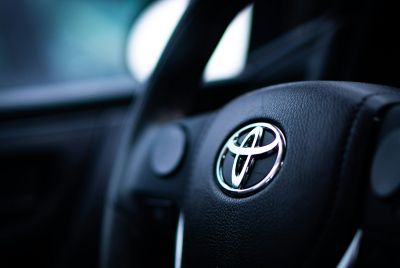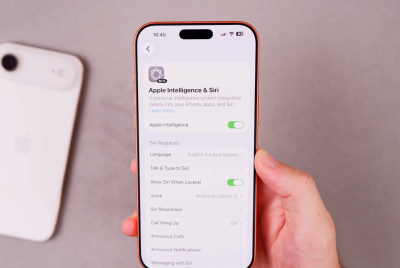Groupon Settles Lawsuit As Share Price Tumbles
Groupon has agreed an $8.5m (£5.3m) settlement with a group of litigants in the US who claimed the expiration dates on the company's coupons were illegal - and comes on the back of further problems for the Groupon as its share price plunged 17 percent in a single day.

Reuters is reporting that Groupon, the world's largest online coupon site, has not admitted any liability as part of the settlement but it has agreed that over the next three years not to sell more than 10 percent of its daily deals with expiration dates of fewer than 30 days.
The settlement resolves 17 lawsuits that had been combined in a federal court in San Diego and which accused the Chicago-based company and retailers it works with of violating federal and state consumer protection laws.
In the lawsuits, the plaintiffs said Groupon violated laws such as the federal Credit Card Accountability Responsibility and Disclosure Act, which prohibits the sale of gift cards that expire in fewer than five years.
The plaintiffs said Groupon "effectively creates a sense of urgency" among consumers to buy its vouchers by offering "daily deals" for a short amount of time, usually 24 hours. The settlement covers consumers who received Groupon vouchers between November 2008 and 1 December, 2011. These people may redeem the vouchers past the expiration dates, or recover from the $8.5m settlement fund.
However this is not the only issue Groupon is facing. The Wall Street Journal (WSJ) is reporting that the company is facing an investigation by the Securities and Exchange Commission (SEC) in the US after it unexpectedly revised its quarterly earnings on Friday.
A source who spoke to the WSJ said the regulator's probe into the popular online-coupon company is at a preliminary stage and the SEC hasn't yet decided whether to launch a formal investigation into the matter.
Groupon went public last November with an Initial Public Offering (IPO) valuing the company at $12.7bn with shares closing at $27 on the first day of trading. On 8 February, Groupon announced its first ever set of quarterly financial results for the three months to the end of January, reporting a $42.7m loss on revenue of $506.5m.

However in an unexpected twist, on Friday the company revised downwards these figures with the revenue down three percent to $492.2m. Expenses were also revised for the quarter and operating income dropped $30m to a loss of $15m.
Why the change of figures? A Groupon spokesperson told Forbes that the revised numbers were a result of a larger-than-expected number of returned deals on high-priced items like Lasik eye surgery and spa packages.
Groupon's share price is currently $15.27 having taken a huge hit on the stock exchange on Monday, ending the day down almost 17 percent.
According to the source who spoke to the WSJ, Chief Executive Andrew Mason and finance chief Jason Child began to question the whole business model of the company after it emerged that a large number of people returned coupons in January, and that Groupon had not set aside enough reserves to pay for these returns.
"It made [the executives] think there's got to be something [they] don't understand. A business just doesn't go sideways and go in another direction overnight," the source said.
However, internal analysis carried out by the company apparently reassured Child and Mason, however investors are not so easily placated with one telling the WSJ that: "I view this as growing pains. This is like a high school kid who is a five-foot sophomore and becomes seven feet by the time he's a senior." The investor was speaking about Groupon's rapid growth in a short space of time - revenue grew from $14.5m in 2009 to $1.62bn last year - and how it is finding it tough to deal with such growth.
© Copyright IBTimes 2025. All rights reserved.






















